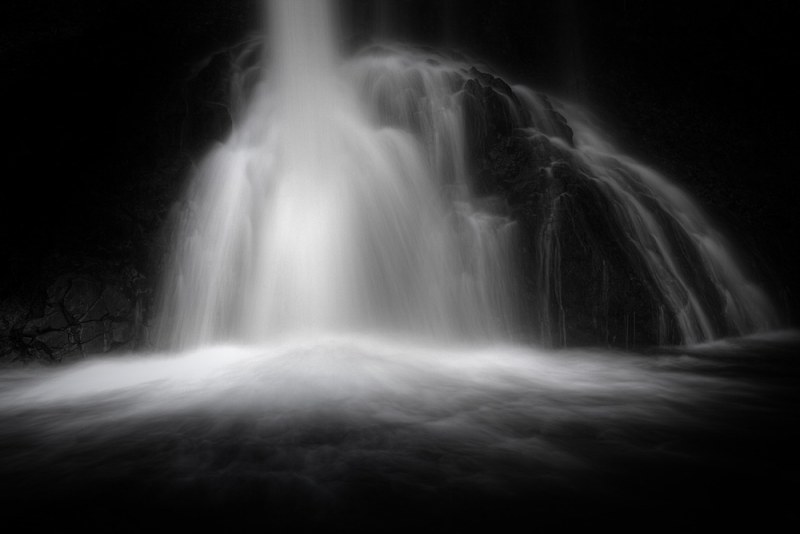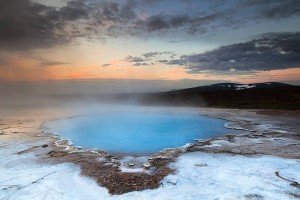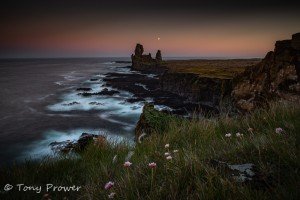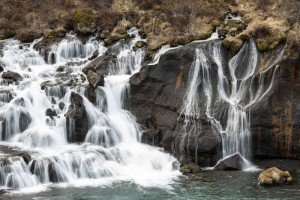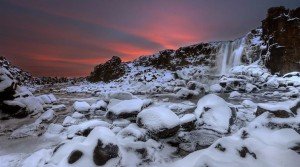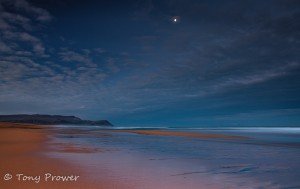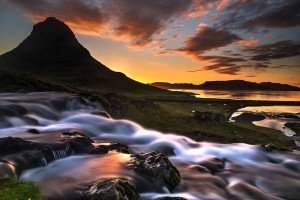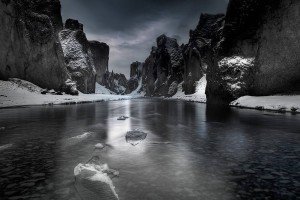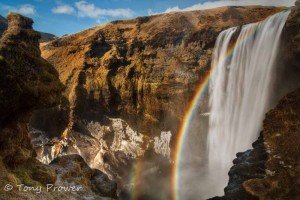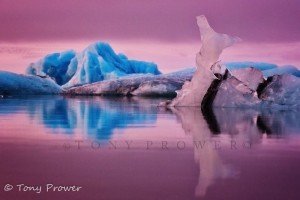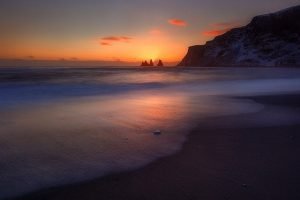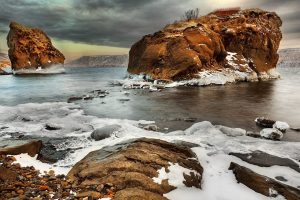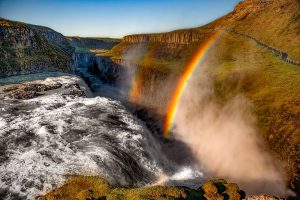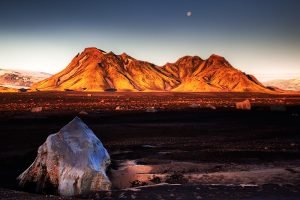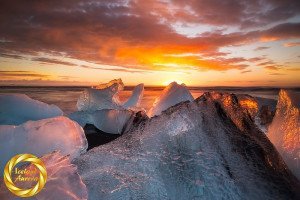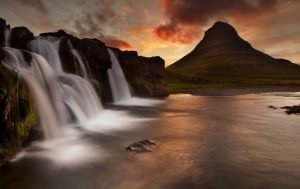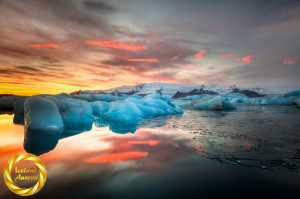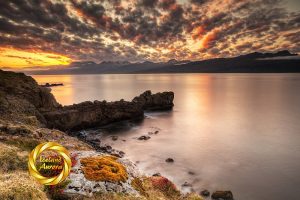Double Waterfall
Skútafoss is a double waterfall near the east coast of Iceland. It is a lesser-known waterfall, just a short drive from Iceland’s most famous mountain. Skútafoss waterfall is in a valley just 15 minutes drive from Vestrahorn Mountain.
The waterfall almost falls into a shallow cave and can also be viewed from the roof of the cave. A small section of the cave roof can be seen in the photograph below (top right corner).
I used to visit Skútafoss waterfall during my winter workshops. The waterfall is often dramatic, and the interesting landscape surrounding it makes Skútafoss a dynamic waterfall to photograph. The smaller waterfall of the two can be a mere dribble, but it springs to life after heavy rain.
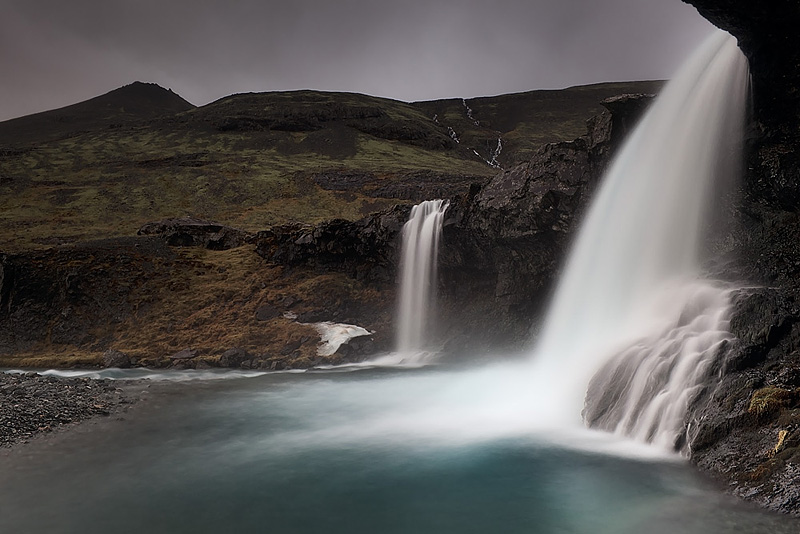
How to get to Skútafoss waterfall
Driving to Skútafoss waterfall is fairly easy. The ring road continues on a left turn just before the town of Hofn. The road enters a tunnel, which goes through Vestrahorn Mountain. About 10 minutes after emerging from the tunnel, the ring road takes a bend to the left. The track into the valley can be seen just after the river.
Access to Skútafoss waterfall is fairly easy all year round. There is a parking area just a few hundred meters up the track, and it is easy to hike the rest of the way to the waterfall.
The first waterfall visible is a man-made waterfall used for generating electricity. After this artificial waterfall, the rest of the valley is 100% natural. The hiking trail gives way to the river in a few places. The river is quite substantial, and there are rapids and a few other smaller waterfalls along the river.
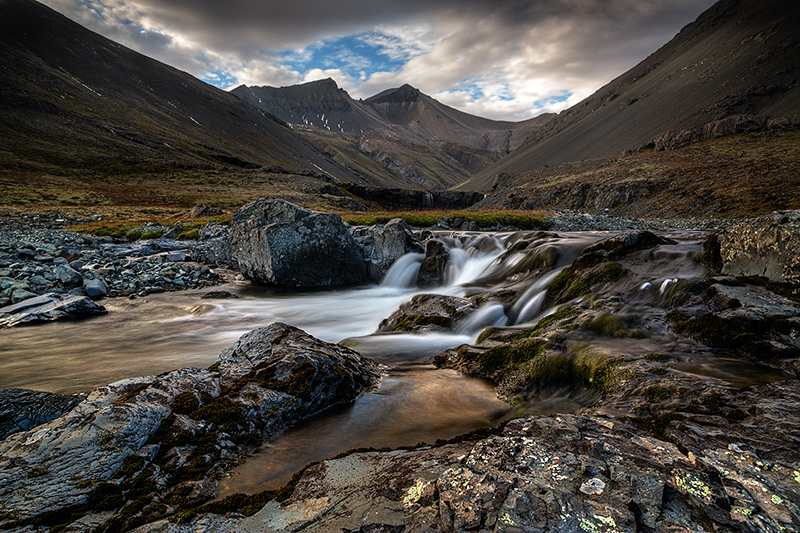
Hidden Treasure
It is only when you are about 100 meters away that Skútafoss waterfall becomes visible. The river running through this East Iceland valley winds in an ‘S’ shape. The path descends onto a rough river bed. It is usually dry, although in wet seasons, the river can flood the area.
The mountains surrounding the valley are mostly loose scree slopes.
Frozen Skútafoss Waterfall
The very first time I discovered Skútafoss waterfall was in mid-winter. The temperatures had been below zero for about a week, and the river was frozen.
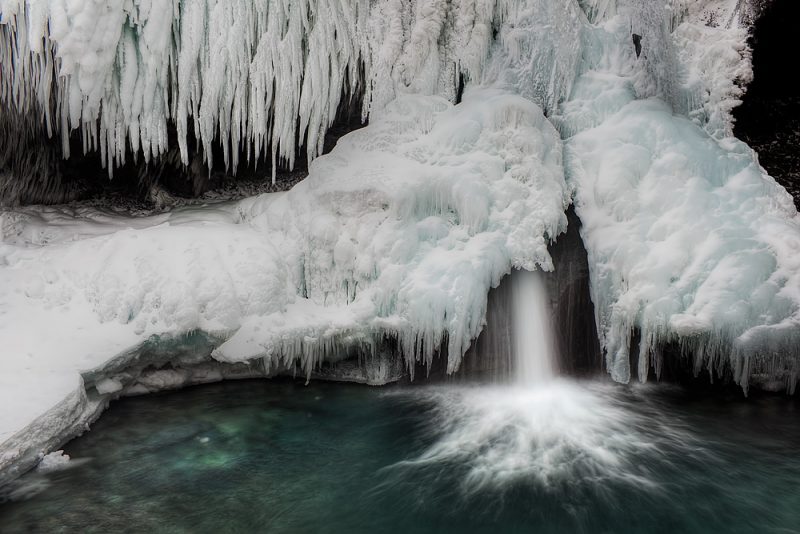
Only the blue pool and centre of the waterfall weren’t frozen. In very cold temperatures, it is possible to cross the frozen river. Most of the river after Skútafoss waterfall is only a few inches deep.
Hotels near Skútafoss Waterfall
Höfn Hotels
These hotels and guesthouses are about a 20-minute drive from Skútafoss waterfall.
Booking.comMountain Scenery
One of the main challenges at Skútafoss is including the mountains in your composition. When you are close to the waterfall, the mountains disappear behind the ledge and cave. It is possible to include the mountains from further back, but then the waterfall doesn’t have so much impact.
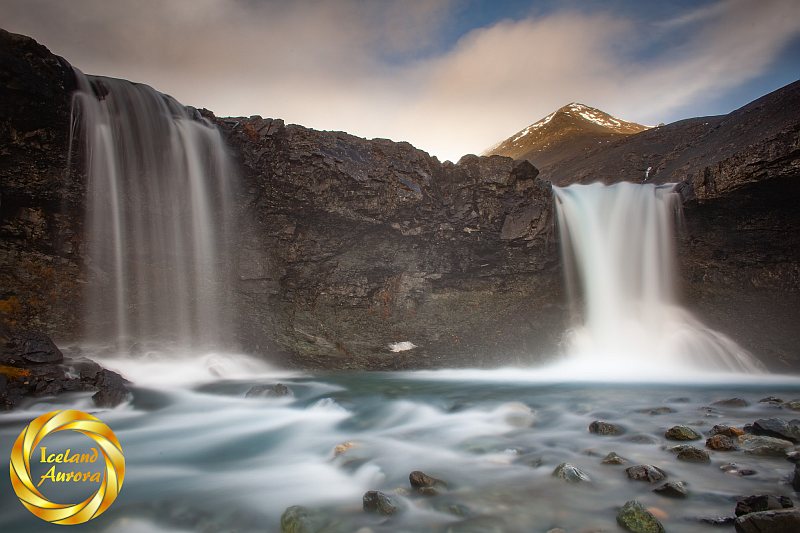
One way to include the mountain with Skútafoss waterfall is to hike up to the top of the cave. In clear weather, you will be able to see all the mountains in the valley.

Inside the Cave
You can see the roof of the cave to the right in the image above. Being in the cave is one of my favourites. It can protect you from wind and rain, which can be heavy here. Inside the cave, I would recommend a super-wide-angle lens. Something like 17-mm will include the outline of the cave. From inside the cave, there is a nice composition of the blue pool and both waterfalls.
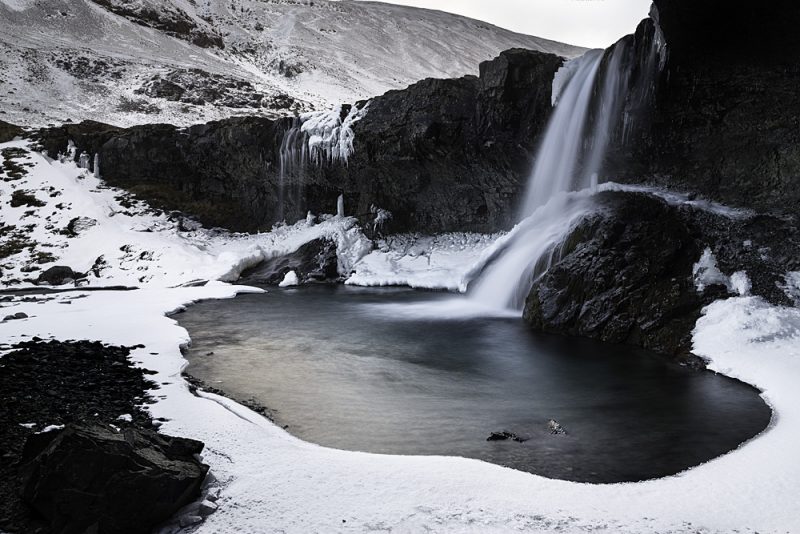
Skútafoss Waterfall Study
The rock around the waterfall is black. This offers strong contrast with the white of the waterfall or ice and snow. With such a dark environment, it is easy to isolate the waterfall to make a great natural object study. The results can be very dramatic.
